Ambassadors
Miriam Barnett
Survivor, Open Heart Surgery
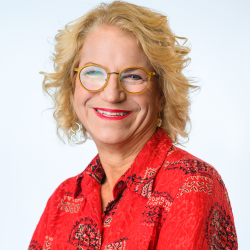
“Don’t be me,” Miriam likes to say half-jokingly. She was 61 when she began experiencing chest pains and shortness of breath upon exertion but brushed it off as sympathy pain because her father was the same age when he died of a massive heart attack. “This went on for a month with me not uttering one word about it to anyone, not even my husband,” she recalls. “I am smart enough to know that if you say something, people will hold you accountable and I wasn’t ready to slow down enough to put myself first and go to the doctor.” One day Miriam, who serves as CEO for the YWCA Pierce County, began to feel horrible at work. It took several people – HR staff, a consulting nurse on the phone, and a board member – to get her to urgent care. The next morning, she was transported by ambulance to the hospital where a procedure revealed blocked arteries. Being told that she needed open heart surgery was a huge shock. “Don’t be me. Your heart matters. Love it for the life it gives you. Make it your number one priority."
Veronica Gallardo
Survivor, Stress Cardiomyopathy
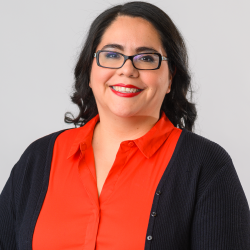
At 32 years old, Veronica couldn’t believe she was uttering these words: “Mom, I think I’m having a heart attack.” They were attending a funeral when she started feeling chest pain. The pain got increasingly worse as her mother drove her to urgent care, where the medical team performed tests, gave her medication, and quickly put her on an ambulance to the hospital. When the doctor confirmed that she was having a heart attack, Veronica reacted by saying, “Are you sure? Can you double check?” She also didn’t want to stay overnight because she had to pick up her daughter from daycare. Later doctors explained to Veronica that she had a case of stress-induced cardiomyopathy, also known as takotsubo cardiomyopathy or broken heart syndrome. Veronica says that the condition altered the shape of her heart and it took six months for it to go back to normal. These days she tries to take daily walks to manage stress.
Marina Jansen, MD
Cardiologist, CHI Franciscan
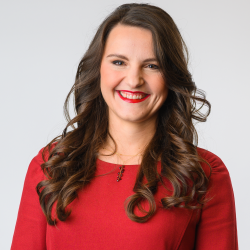
Dr. Marina Jansen wants everyone to know that heart disease remains the leading health threat for women. “As women we need to make health a priority and to know our health numbers, but it’s not all about the numbers that doctors can detect. A healthy lifestyle is a huge factor for maintaining heart health. Managing weight, exercising and eating a healthy diet are all things we can do for ourselves.” Dr. Jansen stresses that cardiovascular diseases are largely preventable as long as women stay on top of their health.
Carrie Miceli
Chair, Puget Sound Go Red for Women Luncheon
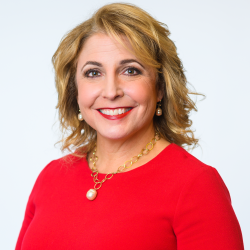
Carrie has been a volunteer for the American Heart Association for many years, serving as a board member for the local AHA and now as chair for the 2019 Go Red for Women Luncheon in Seattle. Heart disease has touched several members of her family, some of which whom survived because of the amazing research and skilled medical professionals. “Be aware of your family health history and your personal risk for heart disease so you can make good choices,” she encourages. Carrie is a Managing Director at Deloitte and an Industrial Engineer by training. Her three children certainly keep her active as she enjoys snow skiing, jogging, swimming and bike riding with them.
Kerry Odeman
Chair, South Sound Go Red for Women Luncheon
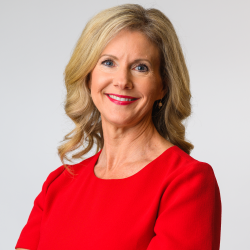
Heart disease has had a significant impact on Kerry and her family. At age 59 her father, who founded of Toyota of Puyallup, was out for a weekend bicycle ride when his heart stopped pumping. Thankfully, an off-duty police officer saw him on the side of the road and immediately began administering CPR. Kerry’s dad lived for several more years, but ultimately his heart gave out. After his death, she took on the role ofpresident of Toyota of Puyallup. Given the family history, Kerry says that diet and exercise are paramount to her health. She loves to hike,cycle, and keep her muscles strong with Pilates and weight training. As an ambassador and chair of the South Sound Go Red for Women Luncheon, Kerry says “I wanted to do my part to better educate women and those around us to take better care of ourselves, so we can lead healthier and happier lives.”
Laura Pugh
Stroke Warrior
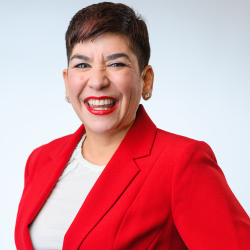
Life can change very quickly. “I woke up as a stroke survivor,” says Laura, recalling how her stroke happened in 2013. She had been a busy career woman who had run seven half-marathons; overnight the stroke robbed Laura the use of her right arm and hand, as well as the ability to walk and talk without difficulty. Equally as devastating was being told that she may only get back to 65 percent of what she used to be able to do physically. But Laura was determined to recover and set two goals: to write again with her right hand and complete a half-marathon. “It took a lot of hard work, tears, and laughing at myself,” she says. “I cried like a baby when I crossed the finish line.” Laura continues to work on her recovery and inspiring others to stay active and make healthy choices. In addition to serving as a local Go Red for Women Ambassador, Laura is part of the American Heart Association’s National Class of Real Women serving as spokeswomen for Go Red.
Laura Vanderpool
Heart Attack Survivor
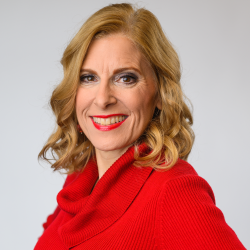
“I am here today because of CPR,” says Laura. About 10 miles into a charity bike ride in 2009, Laura fell over without warning and without a pulse. A few minutes later another cyclist came by and performed CPR. Another three days went by before Laura woke up at the hospital and asked her husband, “What happened?” She had been in a medically-induced coma and her family had been told to prepare for the worst. Laura learned that she had 90% blockage in an artery that caused a heart attack, the last thing anyone expected from someone young and health-conscious, who ran around Greenlake every morning. “The medical personnel were blown away. I simply wasn’t the type they were used to treating on the operating table. They only explanation the doctor could come up with was that it must have been genetic.” Laura received a stent and today shares her story to encourage everyone to learn CPR.